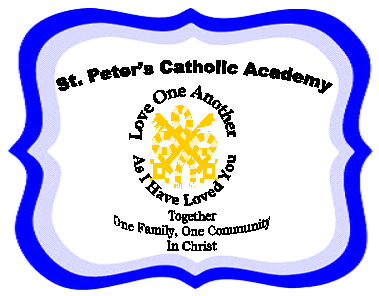Metacognition
Metacognition
At St Peter’s, we have been developing our knowledge and understanding of the role of metacognition in lessons. Research shows that when children improve their metacognitive skills, they are more likely to embrace a ‘Growth Mindset’ and learn from their mistakes and feedback. This will allow children to become more self-regulated learners. This means that they are aware of their own strengths, weaknesses and the different strategies that they can use for a learning task.
What is cognition?
Cognition refers to the mental processes involved in knowing, understanding and learning. Cognitive strategies refer to subject specific strategies or techniques such as mathematical methods used to solve problems.
What is metacognition?
Metacognition is about the way that learners monitor their own learning. Metacognition helps to develop independent and resilient learners.
Metacognitive strategies refer to the ways in which learners can control or monitor their own learning.
The cycle of ‘plan, monitor and evaluate’ is a very important aspect of metacognition.
What is self-regulation?
Self-regulation is about the ways in which children are aware of their own strengths, weaknesses.
Self-regulated learners can motivate themselves to engage in and improve their own learning.
How do we promote metacognition at St. Peter’s?
There are many ways that metacognition is incorporated within our curriculum and every day practice at St. Peter’s. For example, teachers explicitly teach and model new strategies, with opportunities for guided and then independent practice. They use open-ended questions to encourage pupils to reflect upon their progress towards their learning goal and actively support the ‘plan, do and evaluate’ cycle.
All staff have attended training opportunities about metacognition and this will continue to be will be an ongoing area of focus.
Learning characters
In September 2021, the Early Years Foundation Stage began using learning characters to promote the Characteristics of Effective Learning. These are clearly displayed and referred to throughout the day. There are also special stickers with each character on, that the children can achieve where they have displayed a certain characteristic of learning.

Display in Reception
In September 2022, the learning characters were introduced to the rest of the school. This was because the learning behaviours promoted for example making links, perseverance and planning to reach a goal are things that we would like to encourage in all of our pupils! We hope that by Key Stage 2, although the pupils may not need to use the characters, they will be familiar with the different language used when thinking about how they can effectively plan, monitor and evaluate their progress towards a learning goal.
Each class have the characters displayed to encourage metacognitive talk in the classroom and help pupils to know and reflect upon themselves as a learner. During our celebration assembly, each teacher awards a special certificate to acknowledge somebody who has stood out for showing effective learning behaviours that week. For example, you may hear pupils being referred to as a “Persevering Parrot” for showing fantastic perseverance within a task. This may be because a teacher has noticed them independently monitoring how well their strategy is working and choosing a new one if necessary!
How can you support metacognition at home?
Encourage and support your child to set goals for their task and to break this down into smaller steps.
Questions that you could ask to support your child to plan a task are:
- What do you need to do first?
- Have you ever done this before?
- What do you know already that may help you with this task?
Questions that you could ask to support your child to monitor a task are:
- How well is your task going?
- How difficult are you finding this task?
- What could you use to help you?
- Do you need to try a different way?
- Is there anything you could stop and change to make this even better?
Questions that you can ask to support your child to evaluate a task are:
- What went well?
- What helped you?
- How could you make this even better next time?
